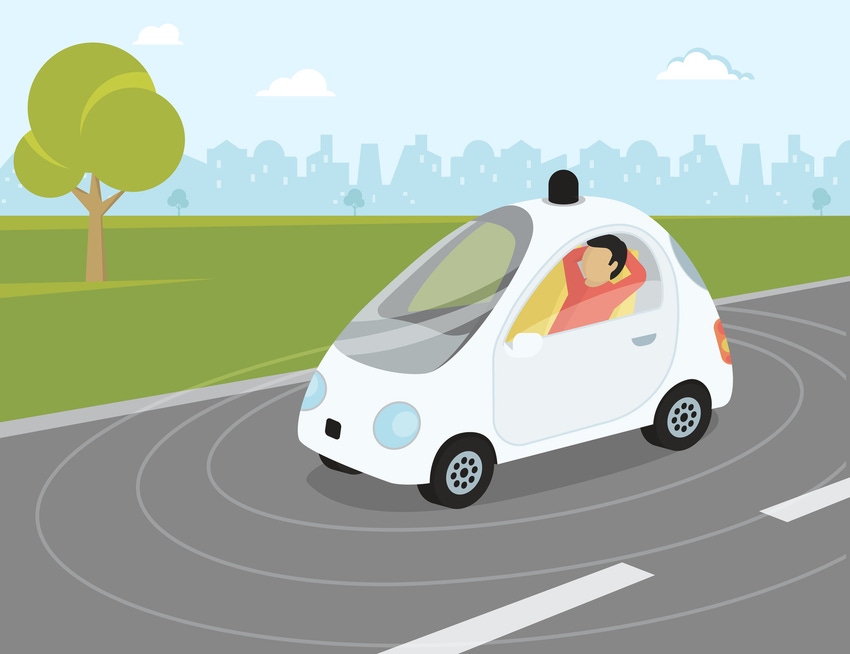Ahead of the budget announcement this week, Chancellor of the Exchequer Philip Hammond has said the development of new technologies will prop-up the UK after the Brexit horror show has concluded.
November 20, 2017

Ahead of the budget announcement this week, Chancellor of the Exchequer Philip Hammond has said the development of new technologies will prop-up the UK after the Brexit horror show has concluded.
In an interview on The Andrew Marr Show, the Chancellor pointed towards breakthrough technologies, including the driverless car, as a means to combat the negative effects of Brexit on the UK. And while the rest of the world seems to be hitting roadblocks in the development of the technology, Hammond foresees an autonomous revolution with the vehicles hitting UK roads by 2021.
“That is our objective, to see fully driverless cars without a safety attendant in the car on the roads in the UK by 2021,” said Hammond. “Some would say that is a bold move, but I believe we have to embrace these technologies, we have to take up these challenges if we want to see Britain leading the next industrial revolution.”
Quite clearly this is a daring ambition for the Chancellor and quite a bit will have to change before this could even be considered a reality. First and foremost, the regulatory landscape would have to change considerably, which is perfectly doable, but there are a host of other encounters as well.
From a technological perspective, fully autonomous vehicles, which are completely reliable and safe, are still quite a way from the real world. For example, Google has claimed to be at the forefront of the driverless revolution, however it came to light a couple of weeks back that the team was struggling with left turns (turns into on-coming traffic) during tests in the US. This is quite an issue.
Another challenge to consider is the ripples which will rock parallel verticals; insurance is a good example. There is work underway, but this will be quite a change in the insurance market, as you will no-longer be insuring individuals but computers. Who is responsible for any crashes and the financial repercussions?
Also in the insurance space, what happens when the roads are populated by drivers and autonomous vehicles? The promise is that human drivers are less safe than AI, so would this mean insurance premiums will increase for those who persist with manually driven cars? What about those who cannot afford to buy a driverless car? Will they be punished for being poorer?
Other issues are concerned with current infrastructure; can driverless cars be a genuine thing without ubiqtuous coverage? If a car cannot connect to the internet, can it function properly? There will be some sort of on-board contingency, but it isn’t an area which has been exhaustively discussed currently.
Some might argue to counter this hurdle is to use V2V technology, which doesn’t rely on cellular connectivity but short-range radio frequencies. Here, cars communicate with other vehicles in the immediate vicinity, while downloading maps and roadworks updates prior to the journey beginning. This sounds reasonable, but is only a halfway solution which could inhibit the long-term ambitions of autonomous vehicles.
For instance, the vehicle won’t be able to navigate around traffic as it won’t find out about a jam until it gets there. The telcos are favouring the cellular option, though the rollout will have to wait for 5G. Car manufacturers are leaning towards the more short-term option, but this is possibly due to the dollar signs imprinted in the back of the mind, as opposed to any feasible long-term ambition for the technology.
The European Commission is set to announce which way it will go next year, but this is the sort of battle which needs to be sorted out before any real autonomous ambitions can be realized. Perhaps the UK government’s position has been revealed with its fast-lane ambitions to driverless cars by 2021.
As you can see, there are still plenty of cracks which need to be addressed before driverless vehicles can become a reality. It is all well and good to have ambition, though as you can see from below, these are possibly objectives born out of necessity not growth; technology is a means to compensate for the negative effects which will be brought on by Brexit.
“We have a huge advantage over a whole range of new technologies which are going to transform our lives, and if we want to ensure our prosperity in the post-Brexit world we have got to embrace these new technologies, we have to build the industries which are creating the high paying jobs of tomorrow and driverless vehicles is one of them,” said Hammond.
The budget this week and upcoming changes to regulation will add some colour to the mounting grey areas, but we’re not too sure about this one. It is all well and good to have aspirations in the technology world, but we have a feeling this is a promise which the UK government will struggle to deliver on.
About the Author(s)
You May Also Like








.png?width=300&auto=webp&quality=80&disable=upscale)


_1.jpg?width=300&auto=webp&quality=80&disable=upscale)


.png?width=800&auto=webp&quality=80&disable=upscale)